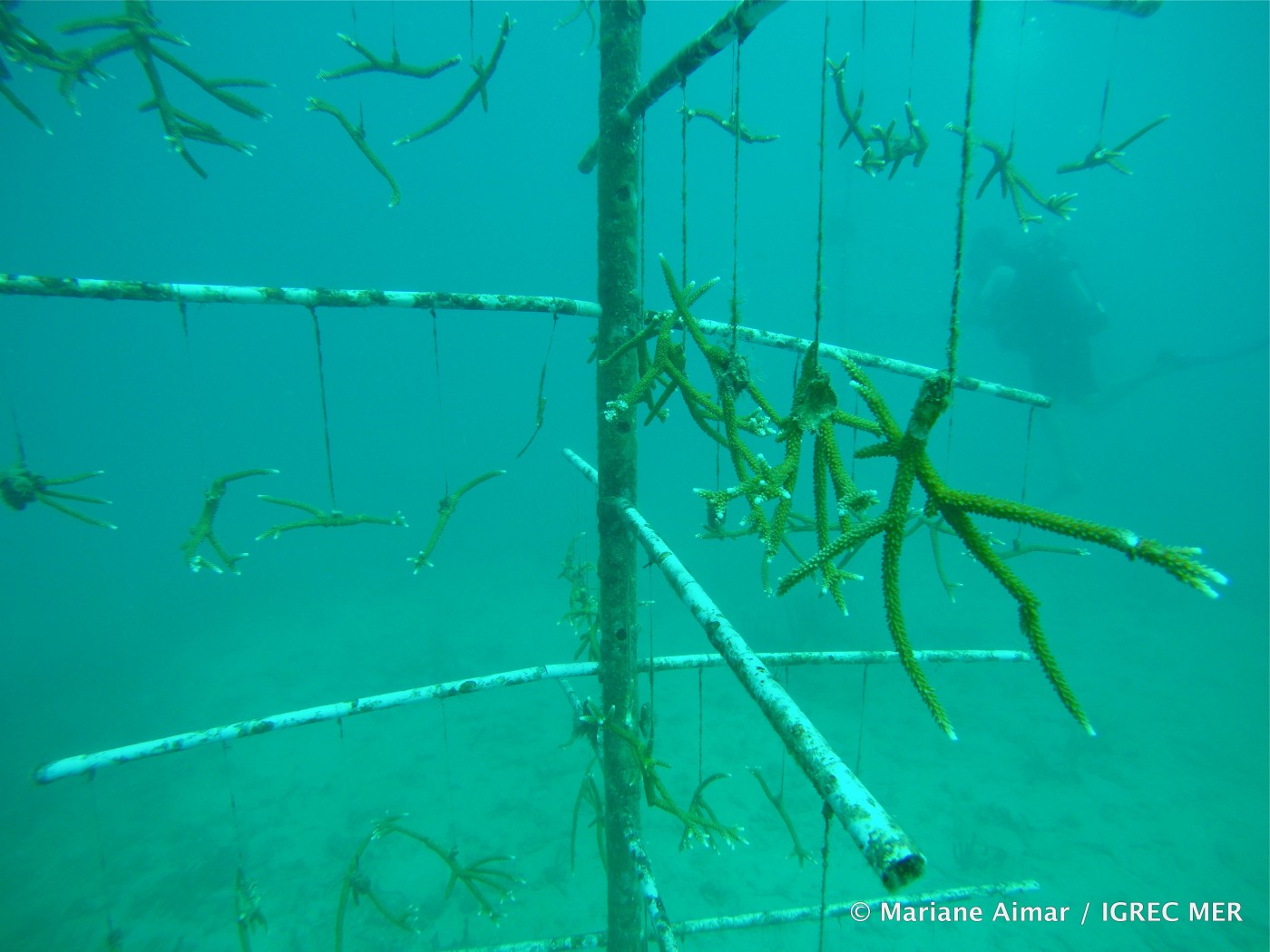05 October 2016
The ESPO Award 2016 will be presented to the port authority that succeeds the best in safeguarding and further upgrading the nature in the port area, both on land and at the waterside. The five projects that are shortlisted for this year’s Award are the projects of Bremen, Cartagena, Dunkirk, Guadeloupe and Riga.
ESPO is proud to present the shortlisted projects, before the winner is announced during the official Award Ceremony at the Egmont Palace in Brussels on 9 November.
ESPO: Congratulations! You have been shortlisted for the ESPO Award 2016! Could you briefly describe your project?
Guadeloupe Port Caraïbes (GPC) is committed to driving development across the entire archipelago, which is in line with its environmental responsibilities. To do so, GPC created Cáyoli, its Natural Areas Management programme with three main objectives:
- To preserve and manage natural areas in order to restore and protect Guadeloupe’s biodiversity;
- To raise awareness about issues of environmental protection and sustainable development;
- To apply the principles of Avoidance, Reduction and Compensation in the port’s day-to-day activities.
Cáyoli created separate management plans for all of the natural areas within the port’s domain, mainly surrounding its 5 different sites: Pointe-à-Pitre, Jarry, Bas-du-Fort, Basse-Terre and Folle Anse. Each action plan is developed based on the initial environmental state of the site and on the basis of ambitious objectives shared with the stakeholders. To raise efficiency of Cáyoli actions, Guadeloupe Port Caraïbes decided to act simultaneously on three emblematic natural environments: mangrove forest, inshore shallows and coral reefs.
ESPO: How does your project contribute to the societal integration of the port?
The programme itself was born out of GPC’s greater appreciation of its role beyond the operation of Guadeloupe’s ports: GPC is not merely the port authority; it does not only move goods in and out of the island. It is a full and important member of society, one that - because of its prominence - has a special role to play (GPC manages 15% of Guadeloupe islands' coastline).
The Cáyoli programme has improved the societal integration of GPC by placing the port at the centre of a close-knit web of stakeholders. GPC has funded environmental and social projects for years, but what has changed now is that these projects all work towards a common goal. The very nature of the programme encourages greater cooperation and integration. Cáyoli funds given to one stakeholder for a specific project will often require input and assistance from other stakeholders. For example, funds disbursed to the Regional Committee of Maritime Fishing and Ocean Farming to conduct a feasibility study for artificial coral reef colonies requires assistance from the researchers of the University of the French West Indies.
ESPO: Could you describe the original and innovative character of your project?
The Cáyoli programme represents a shift in GPC’s approach to environmental conservation. GPC no longer merely funds individual projects and only within the boundaries of its domain. Instead, GPC has taken on the role of environmental steward, taking a bigger-picture view of the environmental issues facing Guadeloupe as a whole. To ensure the programme’s success, GPC has gathered all stakeholders from the beginning of the project and acts as the catalysing force for the group’s action. In fact, because all Cáyoli projects respond to the same overarching objective and require significant cooperation from all stakeholders, the programme as a whole mimics the ecosystems that it is trying to preserve and protect.
In addition, a number of projects under the Cáyoli programme are undertaking innovative scientific techniques. For instance, the coral reproduction programme links university researchers and the local aquarium with their counterparts in metropolitan France. Their work is part of pioneering research being conducted around the world to find successful methods for growing coral artificially.
ESPO: Why do you think your project deserves to win the ESPO Award 2016?
As a public enterprise corporation, Guadeloupe Port Caraïbes is committed to serving Guadeloupe as a whole. The Cáyoli programme aims at finding the right balance between economic development and preservation of ecological functions, in an integrated approach in the management and administration of the harbour, the logistic and natural spaces. To reach this goal, Guadeloupe Port Caraïbes stimulates the development of a real ecological engineering in Guadeloupe in order to formalise protocols, intended to be shared with the public operators and the scientific community.
Being recognised by the ESPO Award will be an asset to raise interest in our environmental programme and, hopefully, will encourage other companies to join us in our initiatives.
ESPO: How would you make your experience in developing the project available to others?
Throughout the project, processes will be documented and disseminated to all stakeholders, the general public and users through newsletters and a specific website. The experiences and the feedback of the project will be consolidated in a global summary report, which will be established at the end of the programme. This document will be distributed within the scientific and environmental networks into which the Grand Port Maritime de la Guadeloupe is integrated. GPC wishes to share the experiment via national and international networks, in particular: ESPO, AIVP, PMAC (Port Management Association of the Caribbean), CSA (Caribbean Shipping Association) and GreenPort.
With Cáyoli, we make a long-term commitment to protect the environment. Becoming an incubator of innovative solutions and their engineering for the preservation of submarine ecosystems and wetland is our shared ambition.
Yves SALAÜN, Chief executive officer GPC

Related documents
No attachments.

